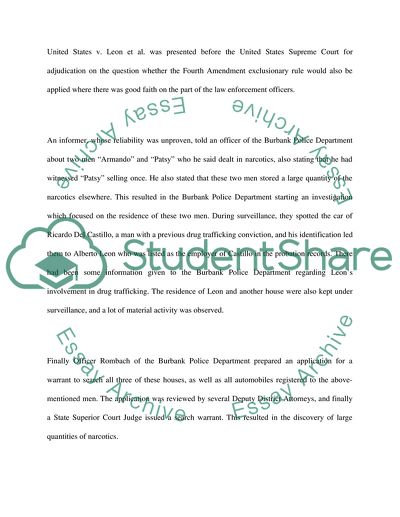Cite this document
(Application Of The Exclusionary Rule Term Paper - 3, n.d.)
Application Of The Exclusionary Rule Term Paper - 3. Retrieved from https://studentshare.org/law/1730912-term-paper
Application Of The Exclusionary Rule Term Paper - 3. Retrieved from https://studentshare.org/law/1730912-term-paper
(Application Of The Exclusionary Rule Term Paper - 3)
Application Of The Exclusionary Rule Term Paper - 3. https://studentshare.org/law/1730912-term-paper.
Application Of The Exclusionary Rule Term Paper - 3. https://studentshare.org/law/1730912-term-paper.
“Application Of The Exclusionary Rule Term Paper - 3”, n.d. https://studentshare.org/law/1730912-term-paper.


